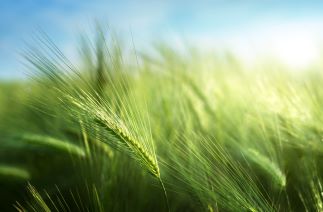Collaboration is a first milestone of BASF’s Global Carbon Farming Program and supports Boortmalt target to reduce its indirect emissions in the value chain

BASF Agricultural Solutions and Boortmalt, the world’s leading malted barley provider, announce their program to jointly reduce CO2 emissions associated with barley production in Ireland. The pilot project, a world-first to involve the entire malting barley value chain, was initiated as part of the 2022 barley campaign with 50 selected Irish farmers.
Boortmalt and BASF are together providing the tools and platforms that support climate smart farming practices. The companies therefore enable Irish barley farmers to reduce CO2 emissions and increase carbon sequestration to decarbonize agriculture and contribute to helping combate climate change.
Through its commercial activities with its farmers, Boortmalt will recommend innovative practices that farmers can implement as part of BASF’s Global Carbon Farming Program and manage the related data. At the same time, BASF is developing a digital platform, powered by xarvio FIELD MANAGER. This platform aims to bring together all necessary farm data in a way that can meet the requirements of the world's major carbon certification bodies, such as the Gold Standard. As such it will enable barley growers in Ireland to generate accredited carbon certificates, which can be freely traded, thus creating an additional revenue stream for their sustainable farming operations.
First results will be reported in the course of 2023 and will be used to explore similar opportunities with other farmers in Ireland and in more countries.
The pilot aims to help participating farmers generate carbon certificates as an additional economic incentive to reduce CO2 emissions of farm operations. Boortmalt plans to purchase the generated certificates along with the low-CO2 barley to reduce their CO2 emissions along the value chain. The sustainably produced barley is later being malted and used by Waterford Distillery, a multi-award winning whiskey project based in the South East of Ireland, to produce whiskey with a reduced CO2 footprint.
“With climate smart agriculture, like resilient farming practices or reducing carbon emissions in farm operations, we can mitigate negative effects of climate change,” says Dirk Voeste, Senior Vice President Regulatory, Sustainability & Public Affairs BASF. “Our collaboration with Boortmalt demonstrates that contributing to mitigate the negative effects of climate change and value generation for farming can go hand in hand. It is an important step forward in our recently announced Global Carbon Farming Program with more to follow.”
“We are continuously working towards reducing our Scope 3 emissions in the value chain, which can only be achieved with the right collaborations,” says Inge de Winne, Chief Sustainability and Supply Chain Officer at Boortmalt. “With BASF, we have found an innovation partner who helps farmers to sustainably increase their yields, reduce their CO2 emissions and improve the quality of their crops.”
Both companies have set themselves ambitious targets to support growers in reducing CO2 in farm operations. BASF Agricultural Solutions has committed to boost sustainable agriculture by 2030, with one of its targets to help farmers achieve a 30% reduction in CO2 emissions per ton of crop produced. Boortmalt is committed to deliver a 30% reduction of its Scope 3 emissions from their agricultural supply chains by 2030.
Subscribe to our newsletter & stay updated.